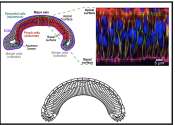Distinct signaling pathway identified as key driver for epithelial cancer development
A distinct signaling pathway called TNF-α drives the transformation of epithelial cells into aggressive tumor cells. During cancer progression, cells activate their own TNF-α program and become invasive. This finding could ...
Jul 17, 2024
0
44









